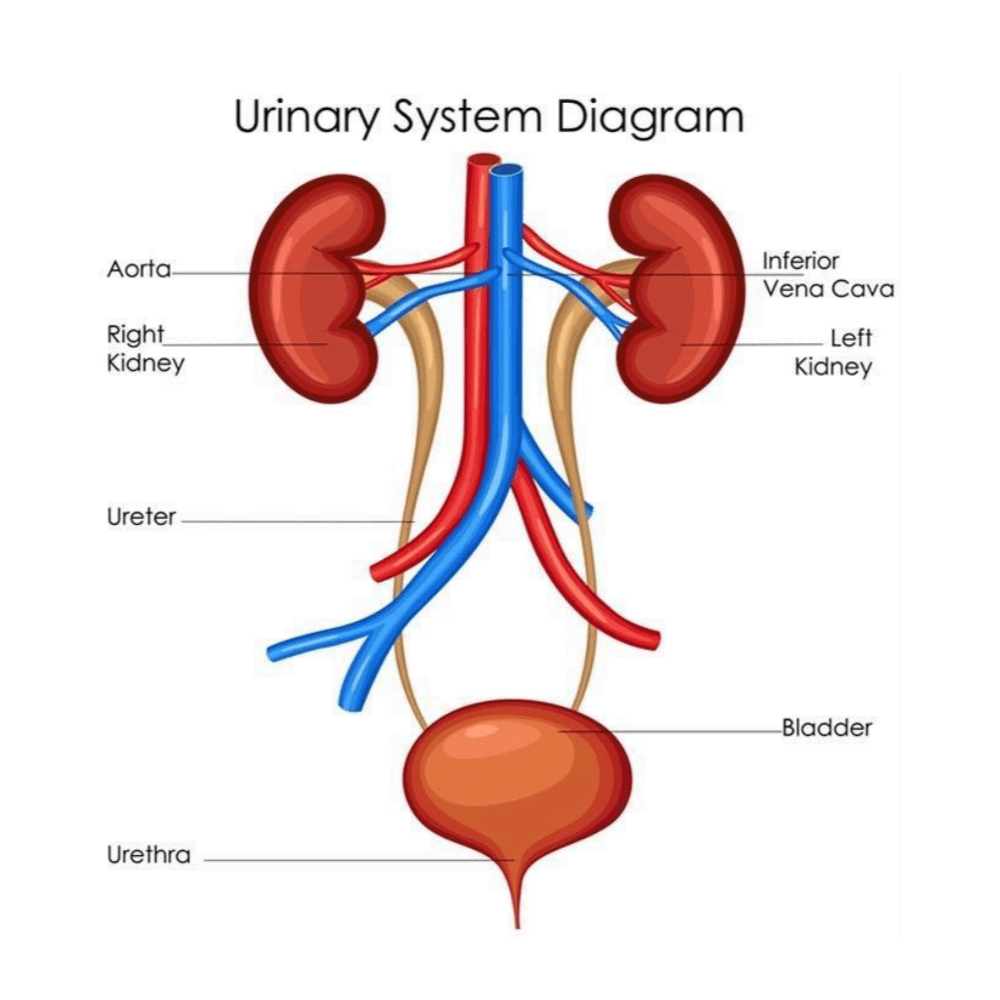
What does it mean to have “kidney failure” (KF), what is chronic kidney disease (CKD) and how are they different? To start with the basics, the job of the kidneys (most of us have two) is to filter unwanted body waste, toxins and electrolytes, and eliminate them through the urinary system. It is a fascinating and complicated chemical filtration apparatus that is controlled by many organ systems, hormones, electrolytes, and is affected by just about everything we ingest. When the kidneys don’t work well, waste builds up in the body, and this can take a long time.
CKD is fairly common, is gradual in onset (like over years or decades), and is found in 33% of the general population. People with hypertension and diabetes, heart disease and obesity are at highest risk for the disease, but other factors include age over 60, infection of the kidneys, polycystic kidney disease, autoimmune disorders and long-standing urinary dysfunction. The condition can run in families, like diabetes. African Americans have a disproportionately higher rate of CKD and KF and are 3 times as likely to have KF as Whites. African Americans represent 35% of all dialysis patients (we are 15% of the general population.)
There are many stages of CKD, graded by lab tests that measure how well the kidneys are functioning– from stage one (minimal decrease in function) to stage 5 (=end stage renal disease or ESRD.) The value that is measured is the eGFR or estimated glomerular filtration rate, a simple blood test. It is very important that the eGFR be measured early and often for the earliest diagnosis and chances of prevention and treatment. It is one of the numbers you should know and have checked at least annually.
| eGFR | STAGE | SEVERITY OF KIDNEY DISEASE/FAILURE |
|---|---|---|
| 90 + | 1 | normal or mild kidney damage (if there is any kidney abnormality) |
| 60-89 | 2 | some signs of kidney damage (like protein in the urine) |
| 30-59 | 3 | moderate kidney damage |
| 15-29 | 4 | severe kidney damage |
| <15 | 5 | kidneys are close to failure or completely (ESRD) -> dialysis or kidney transplant |
WHAT ARE THE SYMPTOMS OF CKD
In the earlier stages of kidney disease there may not be any noticeable symptoms. As
the condition advances, frequent urination, low energy, weakness, shortness of breath
and decreased or lack of appetite will come on. Swelling in the hands, legs and feet,
puffy eyes and dry itchy skin may occur, as well as difficulty concentrating, sleeping and
darkening of the skin. Muscle cramps, nausea, vomiting and numbness are possible.
Blood pressure may increase as well.
WHAT YOU CAN DO TO SLOW OR PREVENT KIDNEY DISEASE
Keep a healthy blood pressure and control your blood sugar if you are a diabetic.
Do not use tobacco.
Follow a low-fat/low-salt/low protein diet.
Keep a healthy weight.
Exercise at least 30 minutes 5 days per week
Doing all of these things and taking an active role in monitoring and managing the condition can go a long way to living a long time with CKD. Visit the kidney specialist and have eGFR checked regularly. Understand that having a healthy heart is also key to optimizing kidney function. Talk to your doctor about any medications that may help your kidney health.
TREATMENT OPTIONS FOR ESRD/STAGE 5 KF
Hemodialysis is a process that allows filtering of urinary waste to happen outside of the body, with your blood going through a machine and then returning to you, using a shunt placed in your arm; this is done at a dialysis clinic. Peritoneal dialysis uses an abdominal solution to absorb the waste and remove it using a permanent tube in your abdominal wall that communicates with the cavities inside; this is done in the home.
Receiving a kidney transplant is a great option, but for obvious reasons, it is not as available as dialysis, and there is a three to five year waiting period too because of fewer donors than people needing a kidney. The transplanted kidney can be either from a live donor or deceased donor. The process involves extensive testing for a suitable compatibility match to avoid complications.
REFERENCES AND FURTHER ONLINE READING
National Kidney Foundation
Pub Med
Cleveland Clinic.org
